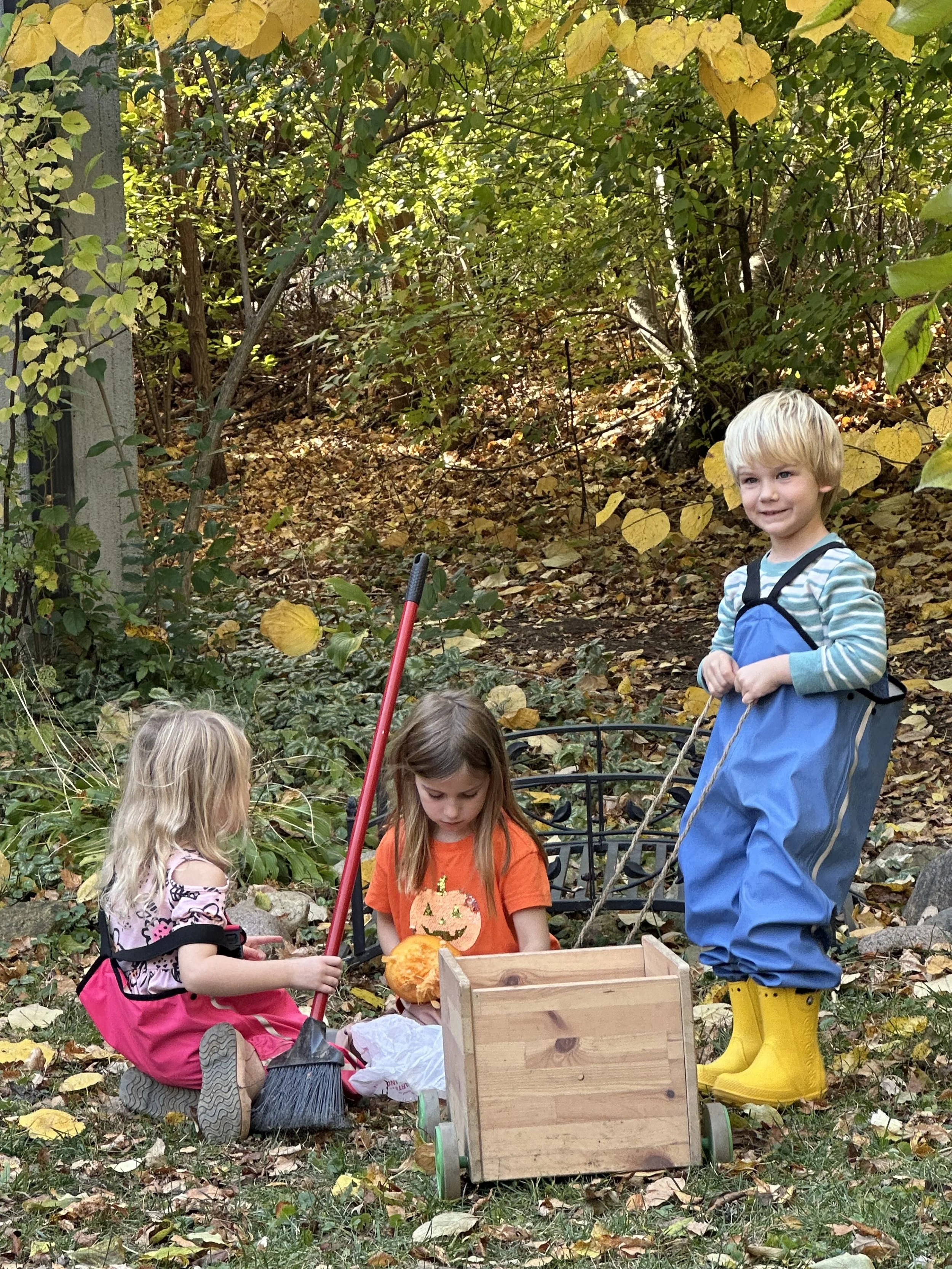Nurturing the Foundational Senses at Home
In Waldorf education, we often speak of educating the whole child. A vital part of this work begins with the four foundational senses: the senses of touch, life, self-movement, and balance. These are the earliest senses to develop in young children, and they form the groundwork for everything that comes later. When these senses are well supported in the early years, children feel safe in their bodies, grounded in the world, and more able to grow with confidence and joy. Through movement, rhythm, play, and a calm, loving environment, we help strengthen these foundational capacities each day. In this article, we’ll take a closer look at each of these four senses, how they support healthy development, and how parents can nourish them in simple but meaningful ways at home.
Sense of Touch
This is the first sense to develop and is essential for helping the child feel where their body ends and the world begins. Through healthy, respectful touch and tactile experiences, like playing with natural materials or walking barefoot on grass, children gain a sense of security and connection. A child with a healthy sense of touch is better able to focus, self-regulate, and feel comfortable in group learning environments. Below are some simple activities you can try at home to support the healthy development of this sense in your child:
Crawling
Clapping Games
Play with different textures (fabrics or rocks)
Gardening
Pick up objects with toe
Sense of Life (Well-being)
This sense helps a child feel how they are inwardly, whether they are tired, hungry, warm, or in discomfort. It gives the child a felt sense of being “at home” in their body. A calm rhythm to the day, nourishing food, sleep, and loving care all help regulate and support this foundational sense. Children with a healthy life sense can better manage transitions, stay in rhythm with the day, and be settled but focused to learn. Below are some simple activities you can try at home to support the healthy development of this sense in your child:
Create and Maintain Predictable Daily Rhythms
Offer Nourishing Food and Calm Mealtimes
Encourage Body Awareness Through Rest and Comfort
Sense of Self-Movement (Proprioception)
This sense allows a child to know where their limbs are and how they are moving without needing to look. It supports coordination, fine and gross motor development. Climbing, digging, dancing, and other physical play strengthen this sense, helping the child become more purposeful and at ease in movement. Children with strong proprioception can sit upright, write comfortably and move through space with confidence, all important for both academic and social life. Below are some simple activities you can try at home to support the healthy development of this sense in your child:
Game: Simon Says
Bear hugs
Cocoon wraps with blankets
Knot Tying
Pulling a wagon with some weight
Sense of Balance (Equilibrium)
This sense helps the child orient themselves in space and maintain upright posture. Balance is deeply connected to a child’s sense of safety. Activities like rocking, spinning, balancing on logs, or walking on uneven surfaces build this sense and support both physical and emotional steadiness. It supports posture, attention, and even emotional balance. Children with good balance are often more adaptable, focused, and steady in both their learning and relationships. Below are some simple activities you can try at home to support the healthy development of this sense in your child:
Handstand against the wall
Hammock Swinging
Walking on Unstable surfaces
Going up and down stairs
Bike Riding
As parents and caregivers, we play a vital role in nurturing the healthy development of these early senses—touch, life, self-movement, and balance. By offering a calm, loving environment filled with warmth, rhythm, and meaningful movement, we help lay the foundation for our children’s lifelong well-being, learning, and inner confidence. Even the simplest moments as sharing a meal, walking together, or rocking gently before bedtime, can have a deep and lasting impact. May this deeper understanding of the foundational senses inspire you to meet your child with renewed awareness, tenderness, and joy.
By: Caroline Savoi Castaldelli
Early Childhood Department Chair
Rainbow Garden Teacher
July 2025
Works Cited:
• Blanning, Namcy “Seeing the Wholeness of the Child”, You are not the Boss of Me”, edited by Ruth Ker, Waldorf Early Childhood Association of North America, 2007, pp 33-39.
• Class Handout on “Good Activities for Young Children for Healthy, Integrated Senses”, received July 2025.
• Class Handout on “Suggested Activities that Support Motor Development - A Guide for Classroom Teachers” , received July 2025.
• Class Handout on “Observations Based on The Lower Senses” from the Association for a Healing Education, received July 2025.
• Class Handout on “Twelve Senses”, received July 2025.
• Lecture by Simone Shurney, The Great Lakes Waldorf Teacher Training, July 2025.




